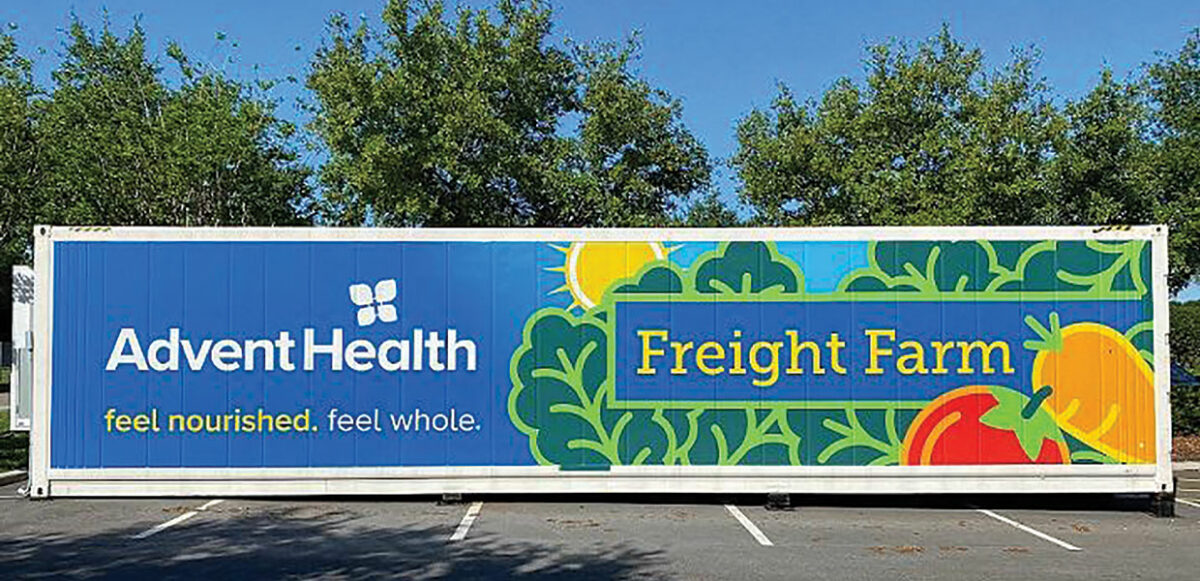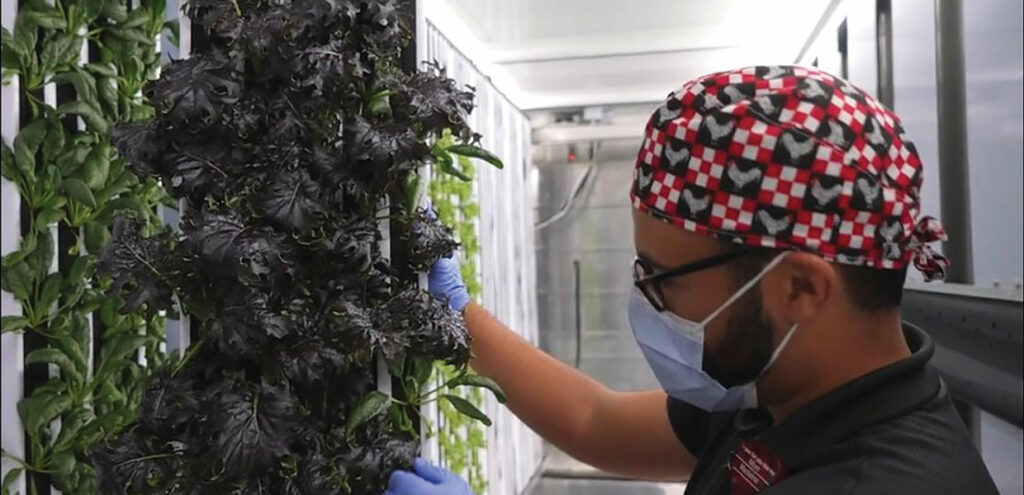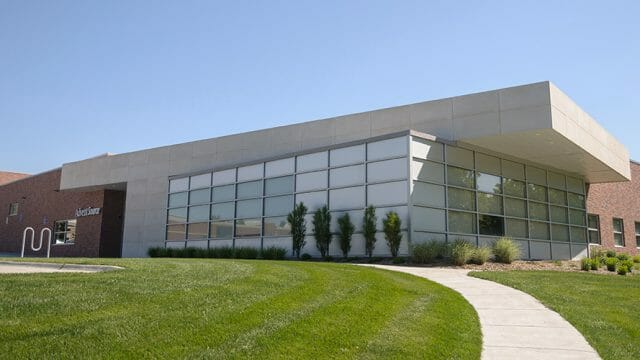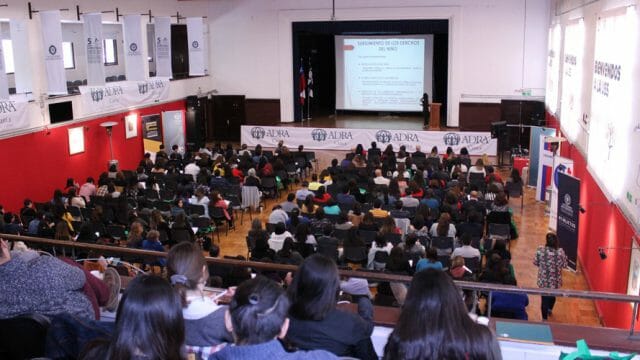In Florida, AdventHealth Celebration is prioritizing nutrition and sustainability.

AdventHealth Celebration is prioritizing nutrition and sustainability through a new innovative program. Recently, team members at the campus celebrated with a ribbon-cutting ceremony for what’s known as a “freight farm.”
The freight farm is a hydroponic farm inside a freight shipping container, measuring 40 feet long and 8 feet wide. Every aspect of the farm is controlled through an app that can monitor and regulate the climate, watering, lights, and more with the tap of a finger. The technology allows for a wide range of crops to grow in a small space, and with minimal physical input.
“I can’t tell you how thrilled I am seeing these vegetables growing,” Patty Jo Toor, chief nursing officer at AdventHealth Celebration, said. “The innovation of the freight farm is fantastic. You can grow a large quantity of food in a very small area, and it grows very quickly because it has the lights and the hydroponics going on 24/7.”
Randy Amil, agricultural specialist at AdventHealth Celebration, said the hospital is the first in the southeast to have the farm on its campus.

“My hope is to inspire our team members and the central Florida community to consume fresh produce and get back in touch with nature,” Amil said. “We are surrounded by so much technology that we often lose our sense of place in the world, and small actions like gardening can teach us to be more resilient and understand the benefits nature has for our body, mind, and spirit.”
How does it work? After seeds are planted into a spongy plug of peat moss and other organic matter, they are sprayed with nutrients and water, and nested under lights that produce an artificial day and night cycle. When the sprouts grow to about two inches, they are stacked into the vertical towers of the freight farm. Water trickles down from plant to plant. The LED lights stimulate photosynthesis, and it takes about six to eight weeks from seed to harvest.
“The purpose of this project is to provide fresh leafy vegetables to our staff and guests at the hospital,” Toor said. “My goal is to have a freight farm at every campus.”
Currently, the harvest is available for team members and guests at the hospital, who may consume the fresh produce at the hospital’s café. The program will be expanded in the future and will also include opportunities for therapeutic horticulture, which combines gardening and social services to improve the lives of people with physical and mental health issues.
The original version of this story was posted by Southern Tidings.








